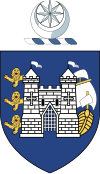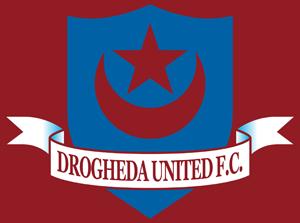GOLATA İSTİNA
Как са живели българите в Османската империя?
През 19-ти век Османската империя подобрява условията на живот по българските земи - глад не е имало, смъртността намалява. Нещо повече: българските земи са били една от икономически най-развитите области на империята.
Това научаваме от новото изследване за демографската политика на Османската империя, чийто автор е професорът по историческа демография в БАН Щелиан Щерионов. Ето още подробности за данните в това изследване:
През 19-ти век управниците на Османската империя, които търсят ноу-хау в Европа, откриват и демографската политика. Често тя е мудна, ненавременна и непоследователна. Общата цел е да се увеличи броят на поданиците на султана, твърди професор Щерионов. Множество източници от османските архиви и от излизащите в Истанбул вестници потвърждават тезата му. В изследването се цитират публикации на английски и френски пътешественици, посещавали империята през онези години, както и трудове на експерти по история на медицината в България.
Дъблин: паметник на жертвите на глада, заличил през 19 век половината ирландски народ...
Osmanskata imperiq pomaga s tri koraba hrana i 10 000 paynda za irlandcite tova sa $1,683,280 US Dollara dneshni pari, anglicanite protestirat, obache Osmanskata flota zalagva anglichanite, che im prashta samo 1 000 paynda i predostavq hranata na skrishno mqsto v grad Drogheda. Za blagodarnost irlandcite postavqt Osmanskite simvoli "lyna i zvezda" za gerb na grad Drogheda, a parite sa dostatichni za 250 dyshi da zaminat za Amerika.Gerba na grad Drogheda

Fytbolnen klyb Drogheda

Ottoman Empire helped the Irish during the Great Hunger
By DONAL THORNTON, IrishCentral.com Staff Writer
Published Tuesday, June 1, 2010, 10:18 AMUpdated Friday, June 28, 2013, 11:56 AM
It has been confirmed that the Ottoman Empire did give aid to the Irish people during the Great Famine.
A copy of a letter is on display at the European Commission office in Dawson Street Dublin, which is signed by the Anglo Irish gentry of the time, thanks Sultan of the Ottoman Empire for a donation £1,000 to the people of Ireland in 1847.
President Mary McAleese addressed guests a Turkish State dinner last year and said that the Irish town of Drogheda had adopted the Star & Crescent as their emblem in gratitude to the people of Turkey who donated three ships full of food to the town during the Famine.
The remarks were subsequently dismissed by the Drogheda Historical society, who said there was no record of the ships docking in the Irish port.
The society's statement has divided the historical community in Drogheda, the majority of the people in the town have been brought up on the belief that the town was aided by the Turks during the Famine.
The Turkish ambassador to Ireland, Altay Cenziger said, "This is proof that the people of Turkey assisted the Irish during the Famine. The money sent to Ireland was sufficient to send 250 people to America.”
Cenziger said that research is being carried out to determine whether or not the Turks actually sent aid to Drogheda.
The letter will be on display in the EC office until June 4th.
http://www.irishcentral.com/roots/Ottoman-Empire-helped-the-Irish-during-the-Great-Hunger-95315214.html#ixzz2l44eqkj4 
-----------------------------------------------------------------
http://en.wikipedia.org/wiki/Great_Famine_(Ireland)
Great Famine (Ireland)
Ottoman aid
According to legend,[75][76] in 1845, Ottoman Sultan Abdülmecid declared his intention to send £10,000 to Irish farmers,that is $1,683,280 US Dollars today, but Queen Victoria requested that the Sultan send only £1,000, because she herself had sent only £2,000. The Sultan is supposed to have sent the £1,000 along with three ships full of food. According to Abdullah Aymaz in an article in The Fountain magazine, the British administration tried to block the ships, but the food arrived secretly at Drogheda harbour and was left there by Ottoman sailors.[77][78] Shipping records relating to the port appear not to have survived. Newspaper reports suggest that ships from Thessaloniki in the Ottoman Empire sailed up the River Boyne in May 1847,[79] although it has also been claimed that the river was dry at the time. A letter in the Ottoman archives of Turkey, written by Irish notables explicitly thanks the Sultan for his help.
http://en.wikipedia.org/wiki/DroghedaA Norman element on Drogheda's coat of arms is its centrepiece, St. Laurence's Gate. The three lions which flank the Norman barbican and the star and crescent, similar to those on the coat of arms of Portsmouth, are taken from Richard The Lionheart's coat of arms who gave both towns their charters. On the other side of the barbican is a ship denoting Drogheda's status as an important port. The town's motto Deus praesidium, mercatura decus translates as "God our strength, merchandise our glory".[10]
A local narrative has it that the star and crescent were included in the town arms after the Ottoman Empire (predecessor to the Republic of Turkey) sent financial aid and ships laden with food to Drogheda during the Great Famine. There are no records of this with the Drogheda Port nor the Irish National Library, due to the fire that occurred in the 20th century. The star and crescent are thought to predate the famine.[11] However, newspaper articles from the period refer to three foreign ships sailing up the River Boyne in May 1847.[12] In addition, a letter found in Ottoman archives, written by Irish notables, explicitly thanks Sultan Abdülmecid I for his help.
A film is being shot regarding the subject as well.
Pravi se i film za sabitieto :http://www.nationalturk.com/en/ottoman-aid-to-ireland-in-19th-century-to-be-pictured-at-screen-with-famine-21672=====================
http://hotterthanapileofcurry.wordpress.com/2010/04/01/ireland-thanks-ottoman-caliphate-for-humanitarian-aid-provided-160-years-ago/
Yahya Kemal Beyatli (d. 1958), a famous Turkish poet and a former ambassador, had an interesting memory from the signing of the Treaty of Lausanne, in which he participated as a reporter.
He recounts that while all the plenipotentiaries of the allied powers (The British Empire, France, Italy, Japan, Greece, Romania, and the Serb- Croat-Slovene State) voted in unison in opposition to Turkey, the representative from Ireland was an exception; in each vote, he raised his hand in favour of Turkey’s interests.
Beyatli noticed this unusual person, and could not help asking him the reason, the Irish representative responded with;
“I am obliged to do it. Not only I, but are all Irish men and women, When we suffered from famine and disease, your Ottoman ancestors shipped loads of food and monetary donations. We have never forgotten the friendly hand extended to us in our difficult times. Your nation deserves to be supported on every occasion.”
Koga pri podpisvaneto na dogovora ot Lozana vsichki ypalnomoshteni leshoqdi ot sauznicheskite sili ( British iperiq, Franciq, Italiq, Qponiq, Garciq, Rymaniq, Sarbo-Harvatsko-Slovenska ) glasyvat vkypom v opoziciq na (Tyrciq) Osmanskata imperiq, predstavitelq na Irlandiq e izkluchenie , vav vseki bot toi vdiga raka v polza na interesite na Tyrciq, i kazva: "Az sam dlajen da go napravq. Ne samo az, no vsichki Irlandski maje i jeni. Kogato stradahme ot glad ibolesti, vashite Osmanski predsci ni dostavqt tovar s hrani i parichni dareniq. Nie nikoga ne sme zabravili priqtelski protegnatata raka kam nas v nashi trydni vremena. Vashiqt narod zaslyjava da bade podkrepqn pri vseki slychai."